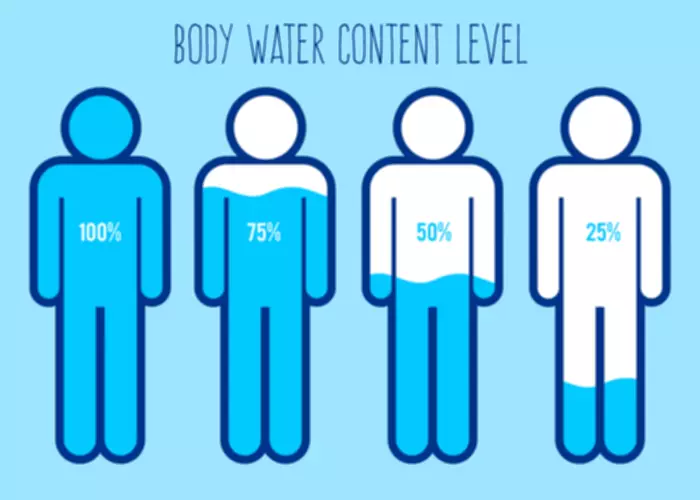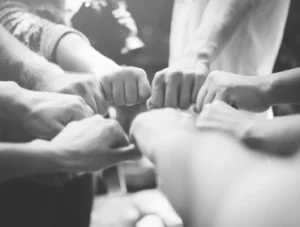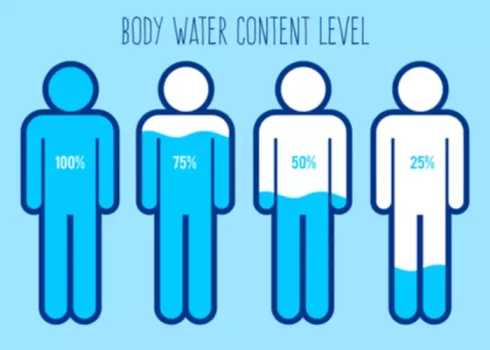
Various triggers can lead to relapse, including stress, exposure to the substance or related environments, or mental health disorders. Understanding, anticipating, and planning for these triggers is a crucial part of the recovery process. At this stage, the body has adjusted to the presence of the substance or behavior and begins to rely on it to function normally. Individuals may experience withdrawal symptoms when they’re not using the substance or engaging in the behavior. It’s a disorder that can take over a person’s life, altering everything from personal relationships to professional aspirations.
- Triggers are things that make you want to go back to old habits.
- Some people remain in this phase because they don’t have sufficient information about addictive behavior.
- Remember, asking for help is a sign of strength; you don’t have to do it alone.
- Addiction rarely occurs immediately after the initial use of a substance.
Top 10 Myths Regarding Alcohol and Drug Abuse
But more dangerous can be when someone uses drugs or alcohol to cope with stress or a mental health issue. This can increase the desire to keep using drugs or alcohol, which can lead to the next phase of addiction. Once Leah became dependent on alcohol for physical and emotional reasons, she reached the stage of addiction. And it has harmful effects on their lives, but the consequences don’t make them stop drinking. During the stage of addiction, if a person doesn’t have access to their “drug of choice,” they experience withdrawal symptoms. Sober living communities offer safe, supportive housing for people getting sober.
Building Resilience and Coping with Cravings
- Finding the right addiction treatment can feel overwhelming, but there are resources available to make it easier.
- Remember that there is no fixed timeline for how long it takes an addiction to develop.
- Children of one or more parents with addiction, for instance, can be at heightened risk for developing substance abuse problems later in life.
- Quitting the drugs or alcohol altogether results in unbearable withdrawal symptoms, intense cravings for the substance, and a whole host of unpleasant emotions.
Substance use may become a habit used to manage cycle of addiction emotions or stress, often called self-medicating. At Renaissance Recovery our goal is to provide evidence-based treatment to as many individuals as possible. Give us a call today to verify your insurance coverage or to learn more about paying for addiction treatment.

How To Break The Cycle Of Addiction In Families
Growing up in a family affected by addiction can have lasting effects on a person’s mental and psychological health in a household. This is particularly true for children of parents with SUD. Break the cycle of addiction now by contacting Rehab Guide. If you require any more information on the services we provide, please get in touch. If I achieve this, I will schedule a week-long vacation to somewhere I’ve always wanted to go. We are more likely to make an effort when we truly feel the pain of the consequences of drug use.
Latest Gilmore Health News

Life can get tough and can include financial, professional, emotional, relationship, or family issues. These burdens produce stress, anxiety, resentment, anger, and, most importantly, fear. Often, these circumstances and situations prompt feelings that people do not want to feel or handle.

As Leah consumed more and more alcohol, it took more alcohol to produce the desired effects. She began to feel like she needed alcohol to function, kind of like needing alcohol instead of coffee to start her day. She tasted other alcoholic drinks to see what they were like. Or we can notice we are triggered and reach out for contact with someone helpful or do something else until the urge goes away. First, come fantasizing and preoccupation with the comforting thought of engaging in the habit. Then, memories of past indulgences can run like a video in the background as you do other things.
How do so many people fall into the trap of drug and alcohol abuse? =https://ecosoberhouse.com/ We will highlight exactly how addiction works and becomes such a powerful force in someone’s life. Recognizing the problem, finding treatment, and building a support network can be life-changing. Contact a treatment provider today to learn more about your treatment options.
- It is undeniable that a drug’s effects are exhilarating in the moment, including a very real sense of relief from pain and suffering.
- It can feel like you are trapped and cannot break the cycle of addiction, but never give up hope.
- Learning how to break the cycle of addiction, then, has never been more important, with scientists estimating between 40% and 60% of your potential for addiction is genetic.
- Reaching out for help is the first step towards getting sober.
It’s because of its effectiveness that this ancient practice has readily been accepted by many people across the globe to make them feel happier and relaxed. When this takes place, the person feels temporary relief from their pain and suffering. But consistently engaging in such behavior leads to enslavement due to the loss of willpower to control yourself from doing it. When this happens, the addict feels stressed and frustrated because they can’t control their urges despite possible harmful repercussions. This is a situation many people today across the globe suffer from but are finding it challenging to break free from the cycle. When you’re trying to break the cycle of addiction, you don’t have to define who’s right, but it’s instrumental to tune into what’s right for you.

Set yourself goals for your rehab therapy
In their quest to avoid pain, addicts turn to their drug of choice for a solution that provides rapid relief, beginning the toxic cycle we call addiction. In addition to rapid relief, addicts may also look to escape their problems and avoid addressing the issues firsthand. Unfortunately, addictive solutions are easily accessible and obtain “results” quickly. For some individuals, alcohol is a go-to choice, while others turn to cannabis, cigarettes, or another substance for instant pleasure. Sober living homes conduct random drug tests, enforce structure and accountability, Drug rehabilitation and provide safe, sober, and supportive housing. I can still vividly remember my initial exposure to porn, just a year after that horrific abuse.
When we’re repeatedly exposed to pleasure-producing stimuli — social media, sugar, alcohol or any number of readily-available substances — our bodies adjust. Then we need more on repeated use, just to feel a the marginal pleasure boost – and, eventually, just to feel “normal.” Identify alternative healthy habits to replace the bad habits. Through TAR Anon™ free online support groups, we provide a safe, neuroregulated space where individuals can connect with others who understand their struggles and triumphs. Over time, these disruptions can lead to issues with emotional regulation, cognition, and resilience, making individuals more vulnerable to addiction.
